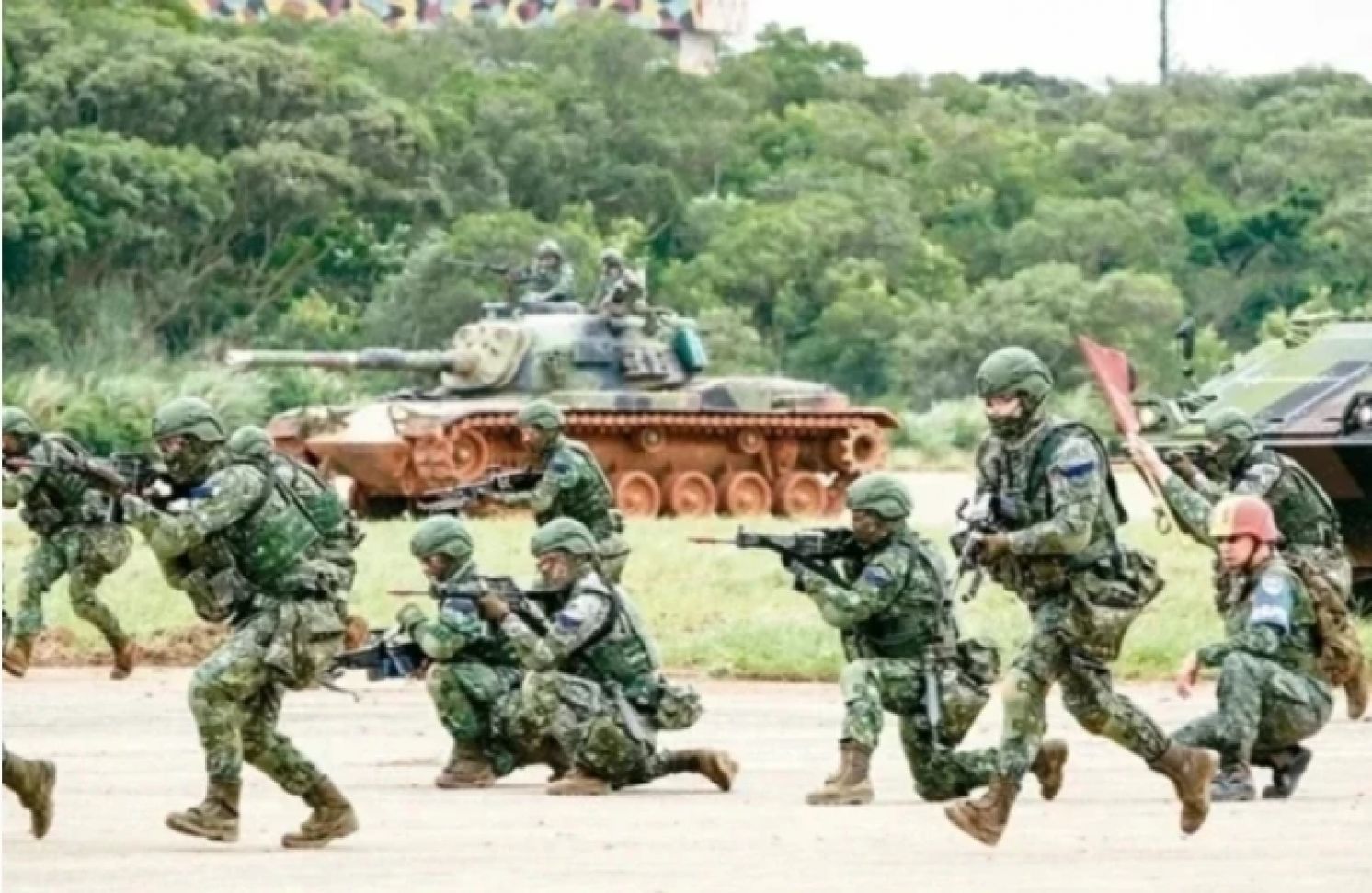
Epidemic Prevention Chaos A Bang to the Armed Forces
By Alexander Huang
United Daily News, June 15, 2021
Combatting the pandemic is like a war. If the current war were not against the coronavirus (COVID-19) but the defense of Taiwan and Penghu, the public can clearly see from the past two months that we probably would have already been defeated.
The emergence of the coronavirus is purely a huge accident that had a very low probability of happening. The human race had all been shockingly ambushed. Sixteen (16) years ago, during a speech President George W. Bush of the United States delivered at the National Institutes of Health, he had already reminded us to take all necessary precautions and be prepared to combat a global pandemic. Dr. Anthony Fauci, who was sitting in the audience at the time, should have been touched by this speech.
The coronavirus has since spread worldwide, and can be regarded as a "black swan" to countries around the world. However, one year later, having taken the pandemic too lightly, Taiwan is now in chaos. It should be taken as a classic case of “gray rhinos.”
Taiwan’s combat preparation for the epidemic, combat leadership, command and control, logistical reinsurance, and mobilization of reserved forces for fighting the pandemic almost all fall short of basic war guidelines and norms. After the outbreak of the virus, allies’ support have been extremely limited and cannot be counted upon. Commentary by foreign media have also been harsh and unrelenting. In facing this extraordinary impact, how can our armed forces not learn from this lesson, and not quickly endeavor for effective response.
Not aware of the ever-increasing threats from the outside, and overly optimistic that Communist China will not attack Taiwan by force, when it comes to repeated warnings given by the international society, the government and the people choose not to hear it, and simply make arguments that would make themselves feel better, or criticize the armed forces, believing that building up military capabilities is not urgent, and that war would not just suddenly happen. This is misjudgment of the evolving environment.
Blocking enemies overseas and defeating enemies at the national borders, the Central Epidemic Command Center (CECC) seems to be guided by the strategy of “defense and safeguard,” and has carelessly assigned the responsibility of commander-in-chief to merely a cabinet member. When the defense and safeguard wall was penetrated by the pandemic, the rapid transmission of the pandemic could not be defeated by the incremental deterred and defeated measures. The warfare against the pandemic stagnated into a passive urban guerrilla war. This is an absurdity of combat leadership.
The CECC is like a joint operation command center in the warfare, to give unified order. Although it is necessary to coerce and order, if the CECC cannot be realistic and tries to deceive and twist the truth, continuously contradict itself, and make all decisions based off of political considerations, then it would definitely lose the trust of each and every war district, and the people as a whole. This is an absurd of command and control.
Logistics is the core element of winning a war. This is a lesson from history. Taiwan’s strategy towards the pandemic this time lacked the sense to obtain sufficient emergency preparation and assured logistic capacity, due to being overly optimistic regarding the pandemic. Apart from individual combat related to face masks, forming a so called “national team,” when it comes to the key factor in winning a decisive battle: the vaccine, there is obvious traces of not putting an emphasis on buying from abroad and protecting our and self-developed vaccine, so as to miss the timing of destroying the pandemic. This is an absurd of logistic preparation.
If a war across the strait erupted, within a few minutes, the casualties caused by a few missiles can exceed the total casualties of the pandemic in the past year and a half. Judging from the fact that the medical capability has been on the verge of collapse in the past few weeks, and the need to call for retired medical staffs’ support, the load of military medical services, the deployment of advanced field hospitals, and mobilization of reserved medical service will be even more far from actual needs.
When all countries were vying for vaccines, Taiwan miscalculated its strategic deployment in advance, then resulted in far delayed delivery. The donations made by the United States and Japan are valuable and seem like signs of relief, but are actually just a drop of water in the drought. Suppose, a war erupts across the Taiwan strait one day, the timely supplementation of military equipment and ammunition and international military support are barely reliable. In addition, the supply of water, electricity, oil, gas, and the Internet cannot be guaranteed during wartime. The curfew time, logistics and transportation, and control of personnel flow will be far more difficult than then a level 4 lockdown for epidemic prevention.
Taiwan's medical personnel has experience coping with SARS for reference. However, the Armed Forces has not had actual combat experience for 63 years since the Kinmen artillery bombardment. After seeing the chaos with the fight against the pandemic, can the military not take caution?
The author is associate professor at the Graduate Institute of International Affairs and Strategic Studies, Tamkang University.